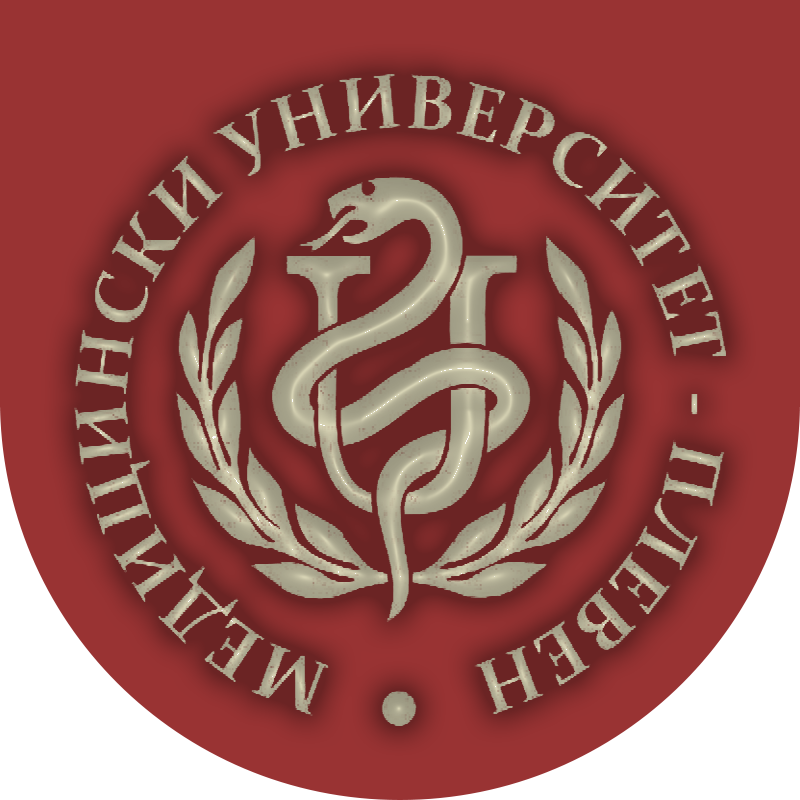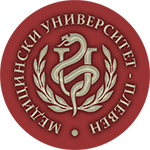Sector of Disaster Medicine (DM) was established as a department in 1975. Head of Department was prof. Hristo Nechev, DM, DSc. From 1989 to 2002 Head of Department was prof. Pencho Salovsky, MD, DSc. From 2002 to 2015 Head of Sector was assoc. prof Veneta Shopova, MD, PhD. Since 2015 Head of Sector is assoc. prof Violeta Dancheva, MD, PhD Since the establishment of the department three dissertations have been defended – two for PhD and one for Doctor of Science. At present time two assoc. professors work at the sector.
Academic staff:
- Assoc. Prof. Dr Violeta Yordanova Dancheva, DM, PhD. Specialty – Disaster Medicine
Tel. 064 884 288; e-mail of department:
Material base
The sector has one renovated lecture hall and 3 laboratories: 2 toxicological and 1 sanitary-chemical. The sector of Disaster medicine is well equipped technically (multimedia, computers, and overhead projector).
Educational process (lectures and exercises) for students:
- Specialty Medicine (Faculty of Medicine) - Bulgarian Learning Education (BLE) and English Learning Education (ELE);
- Specialty Medical Rehabilitation and Ergotherapy (Faculty of Public Health);
- Public Health Protection and Control;
- Specialty Nursing (Faculty of Health Care);
- Specialty Midwifery (Faculty of Health Care);
- Specialty Lab Technician (Medical College);
- Specialty Radiographer (Medical College);
- Specialty Assistant Pharmacist (Medical College);
- Specialty Social Activities (Medical College);
- Participation in bachelor and master programs of Faculty of Public Health.
Disciplines presented by the academic staff of the sector:
- Disaster Medicine
- Radiobiology
Training in Disaster Medicine is focused on studying biological effects of ionizing radiation: effects on molecular, cellular and tissue levels, clinical features, treatment and prophylaxis of acute radiation syndromes and other radiation damage. Training is also focused on toxicological study of the most common occupational, domestic and accidental poisonings, their clinical picture, prophylaxis and treatment. A substantial part of training is oriented to management of disaster situations – organization of medical care and triage in case of mass injuries, disasters and accidents.
The basic fields of research activity are:
- Early biological effects in lungs in isolated and combined influence of chemical and radiation factors;
- Role of lipid peroxidation and antioxidant defence system in combined damage of chemical and radiation factors;
- Diagnostic value of some markers for cytotoxicity in bronchoalveolar lavage fluid in combined damage;
- Influence of antioxidants on some markers for lipid peroxidation and antioxidant defence system in rat lungs in conditions of oxidative stress;
- Influence of different antioxidant classes on some markers of inflammation and proliferation after total body gamma irradiation
- Influence of different antioxidant classes on some markers for lipid peroxidation and antioxidant defence system in rat lungs in diseases/drugs provoking oxidative stress.
The academic staff was played a leading role in a joint scientific project (sponsored by EC) in collaboration with Great Britain National Board of Radiation Protection (1994 – 1995). Project findings were published in prestigious international and Bulgarian scientific journals.
The scientific results obtained from our experiments were published in reputable international and Bulgarian scientific journals such as: Human Exp Toxicol, Radiat Environ Biophys, Environ Res, Health Persp, Am J Ind Med, J Occup Environ Med, Environ Toxicol Pharmacol, TheScientificWorldJournal, OJRD, Respirology etc. The academic staff has attended many national and international scientific events - meetings, forums and conferences, congresses etc.



